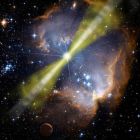-
 +3 +2
+3 +2Dark Energy May Not Exist: Something Stranger Might Explain The Universe
There might not be a mysterious 'dark' force accelerating the expansion of the Universe after all.
-
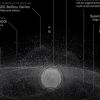 +36 +5
+36 +5The Imminence of the Destruction of the Space Program
New calculations put the date much closer than we should be comfortable with
-
 +34 +9
+34 +9NASA is investing in a rocket that could get humans to Mars and back in 2 months — and travel at 100,000 mph
The Pulsed Plasma Rocket could significantly shorten a round-trip to Mars, reduce risks to astronauts' health, and be ready to launch in 20 years.
-
 +19 +2
+19 +2We could detect a malfunctioning warp drive on an alien starship
Faster-than-light warp drives are theoretically possible to build, and if aliens are using them, we should be able to detect the gravitational waves produced when one goes wrong
-
 +25 +1
+25 +1New warp drive concept does twist space, doesn’t move us very fast
While it won't make a useful spaceship engine, it may tell us more about relativity.
-
 +19 +6
+19 +6Glow of an exoplanet may be from starlight reflecting off liquid iron
A phenomenon called a "glory" may be happening on a hellishly hot giant planet.
-
 +36 +5
+36 +5NASA Selects New Crew for Next Simulated Mars Journey - NASA
NASA has selected a new crew of four volunteers to participate in a simulated mission to Mars within a habitat at the agency’s Johnson Space Center in Houston.
-
 +31 +3
+31 +3Magnetic Fingerprints of The Milky Way's Black Hole Revealed in Stunning Image
The magnetic fields that spiral around our galaxy's supermassive black hole Sagittarius A* have now been revealed by twisted light.
-
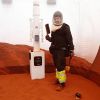 +15 +4
+15 +4NASA is looking for volunteers to live in its Mars simulation for a year
NASA put out an open call on Friday for volunteers to participate in its yearlong Crew Health and Performance Exploration Analog (CHAPEA 2) mission. The space agency will select four people for a crew that will be housed in its 1,700-square-foot 3D-printed habitat in Houston.
-
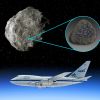 +28 +5
+28 +5Scientists identify water molecules on asteroids for the first time
Using data from the retired Stratospheric Observatory for Infrared Astronomy (SOFIA)—a joint project of NASA and the German Space Agency at DLR—Southwest Research Institute scientists have discovered, for the first time, water molecules on the surface of an asteroid.
-
 +19 +3
+19 +3NASA to Study Effects of Radio Noise on Lunar Science - NASA
In February 2024, Intuitive Machines’ IM-1 mission will launch to the Moon’s South Polar region, as part of NASA’s Commercial Lunar Payload Services, or CLPS,
-
 +50 +7
+50 +7Japan may delay its Mars moon sampling mission MMX due to rocket problems
JAXA needs to get its H3 rocket flying successfully early next year
-
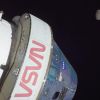 +5 +1
+5 +1Why 2024 Will Be an Epic Year in Spaceflight
It will be a year filled with exploration, innovation, wonder—and no shortage of risk.
-
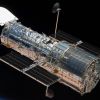 +46 +6
+46 +6Hubble back in service after gyro scare—NASA still studying reboost options
NASA is still evaluating Hubble servicing studies from SpaceX and other companies.
-
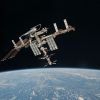 +35 +7
+35 +7Russian ISS cosmonauts dodge coolant leak during spacewalk
Cosmonauts face third coolant leak in less than a year, but the crew and the station are not in any danger
-
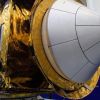 +31 +7
+31 +7Space drugs factory denied reentry to Earth
The Air Force and the FAA denied permission for Varda Space's capsule to return and land on Earth.
-
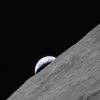 +22 +3
+22 +3Small moonquakes caused by Apollo lunar lander module, study finds
The Apollo 17 lunar lander module left behind by US astronauts on the moon’s surface could be causing moonquakes, or small tremors, a new study revealed.
-
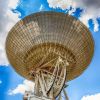 +31 +6
+31 +6NASA officials sound alarm over future of the Deep Space Network
"I'm not sure who thought it was a good idea to put up CubeSats with Artemis I."
-
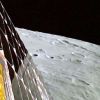 +25 +4
+25 +4India's moon rover confirms sulfur and detects several other elements near the lunar south pole
India’s moon rover has confirmed the presence of sulfur and detected several other elements on the surface near the lunar south pole a week after the country’s historic moon landing.
-
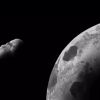 +13 +2
+13 +2What would happen if an asteroid hit the Moon?
If a large asteroid impacted the Moon, would it cause problems for us here on Earth?
Submit a link
Start a discussion





















